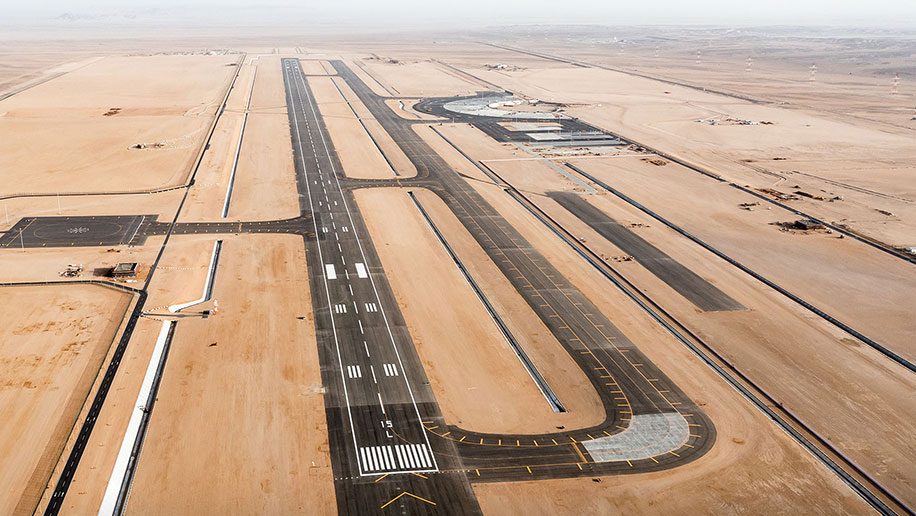
The Red Sea Development Company (TRSDC) has signed a SAR1 billion agreement to appoint Daa International as the operator of the upcoming Red Sea International (RSI) airport in Saudi Arabia.
Powered by 100 per cent renewable energy, the facility is expected to become the region’s first-ever carbon-neutral airport.
The airport is being readied to receive its first guests early next year, and is aimed at ushering in a carbon-neutral, net-zero era for airport designs and operations.
RSI is a regenerative airport designed by Foster + Partners. It will be able to serve an estimated one million domestic and international tourists per year by 2030 – at a peak of 900 travellers per hour.
RSI will serve as an innovative blueprint for decarbonised urban destinations of the future said John Pagano, CEO of TRSDC, who has built the Red Sea and AMAALA projects around the premise of regenerative tourism.
John Pagano details the development plans for the Red Sea Project in Saudi Arabia
“Our agreement with leading industry player Daa International marks our latest step towards materialising a sustainable, regenerative gateway that will open this under-explored region of Saudi Arabia to the world,” said Pagano, according to state-run Saudi Press Agency.
Daa will serve as the airport operator for RSI in 2023, overseeing design consultancy, management, and operations. Its services will also enable the integration of green technology and waste and resource management.
Nicholas Cole, CEO of Daa International, said: “The Red Sea International airport is primed to deliver luxury guest experiences unlike any other. We are thrilled to partner with TSRDC to bring to life a seamless, ultra-premium, highly personalised experience for each passenger traveling through this unique gateway, underpinned by stringent sustainability goals.”
TRSDC and Daa are also working with ACI Europe’s Airport Carbon Accreditation Program to secure the highest current standard Level 4+, which would make RSI the first new airport in the world to secure this standard before its operations commence. Discussions are also underway to create a new ‘Level 5’ standard, in turn making RSI the first airport in the world to acquire this new rating.
The airport was successfully registered with the International Air Transport Association (IATA), and recently completed test landings and take-offs on the 3.7km main runway.
RSI will be the first and only airport in the region with a dedicated runway for seaplanes and water aerodromes, regulated by a new set of safety guidelines from the General Authority of Civil Aviation in Saudi Arabia.
Furthermore, it will also service hydrogen-powered seaplane variants, supplied by hydrogen-electric aviation firm ZeroAvia, as well as electric vertical takeoff and landing (eVTOL) and electric short takeoff and landing (eSTOL) aircraft technology.
Zeroavia said in July that it will explore the possibility of converting Cessna Caravan seaplanes using its hydrogen-electric propulsion technology.
The 600kW system, targeting certification to support commercial operations of 9-19 seat aircraft, including the Cessna Caravan, will be able to fly 300 nautical miles as early as 2024. The company is also working on a powertrain for 40-80 seat aircraft with up to 1,000 nm range for market entry in 2026.
TRSDC plans to operate a fleet of around 30 seaplane variants of the Cessna Caravan to transport guests across the destination.












